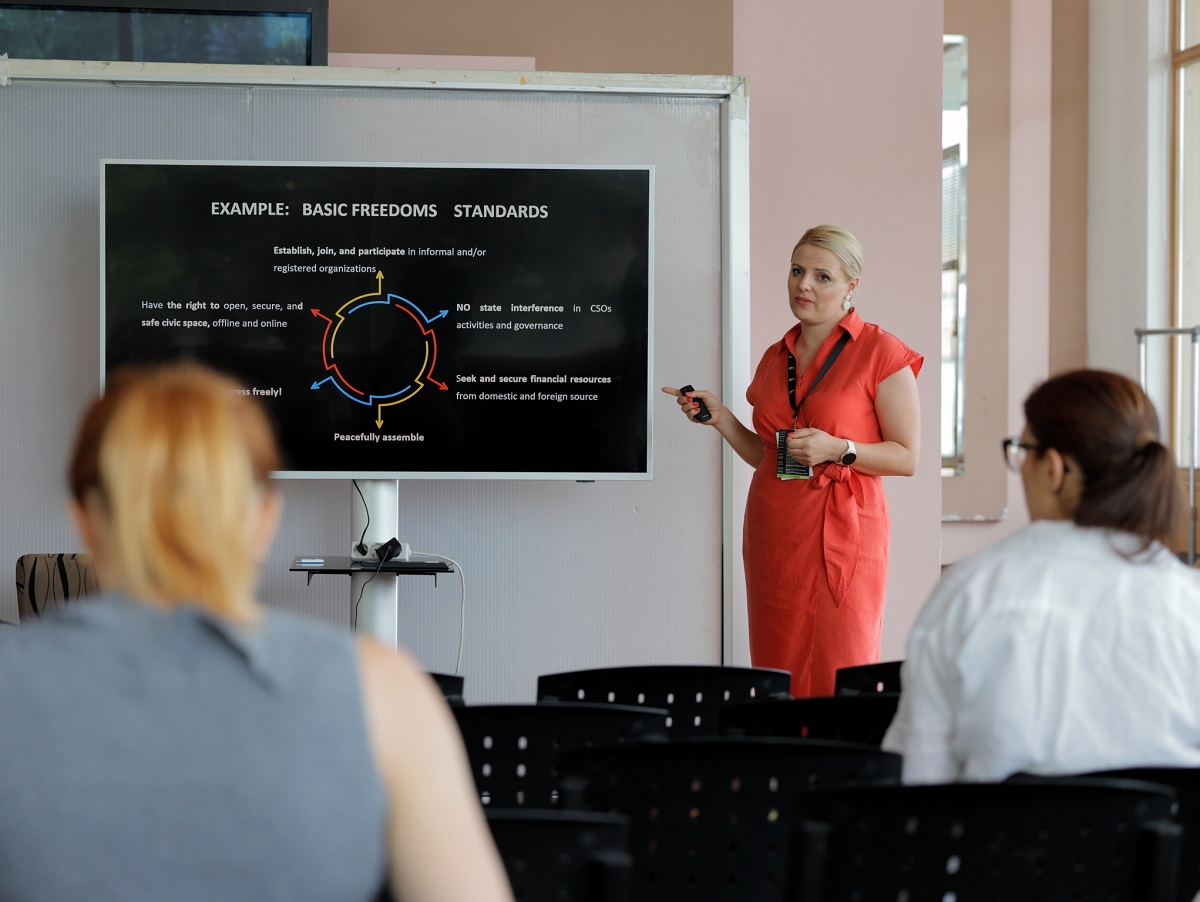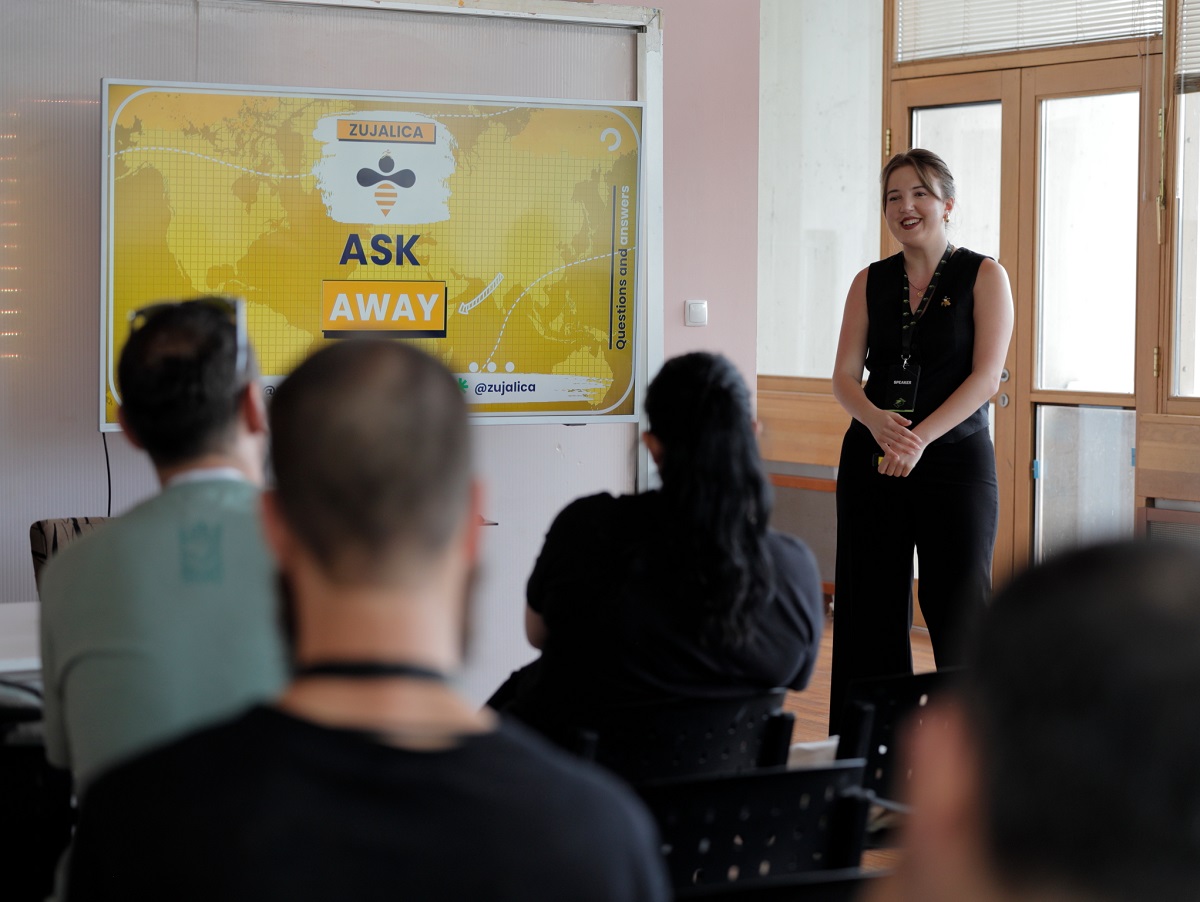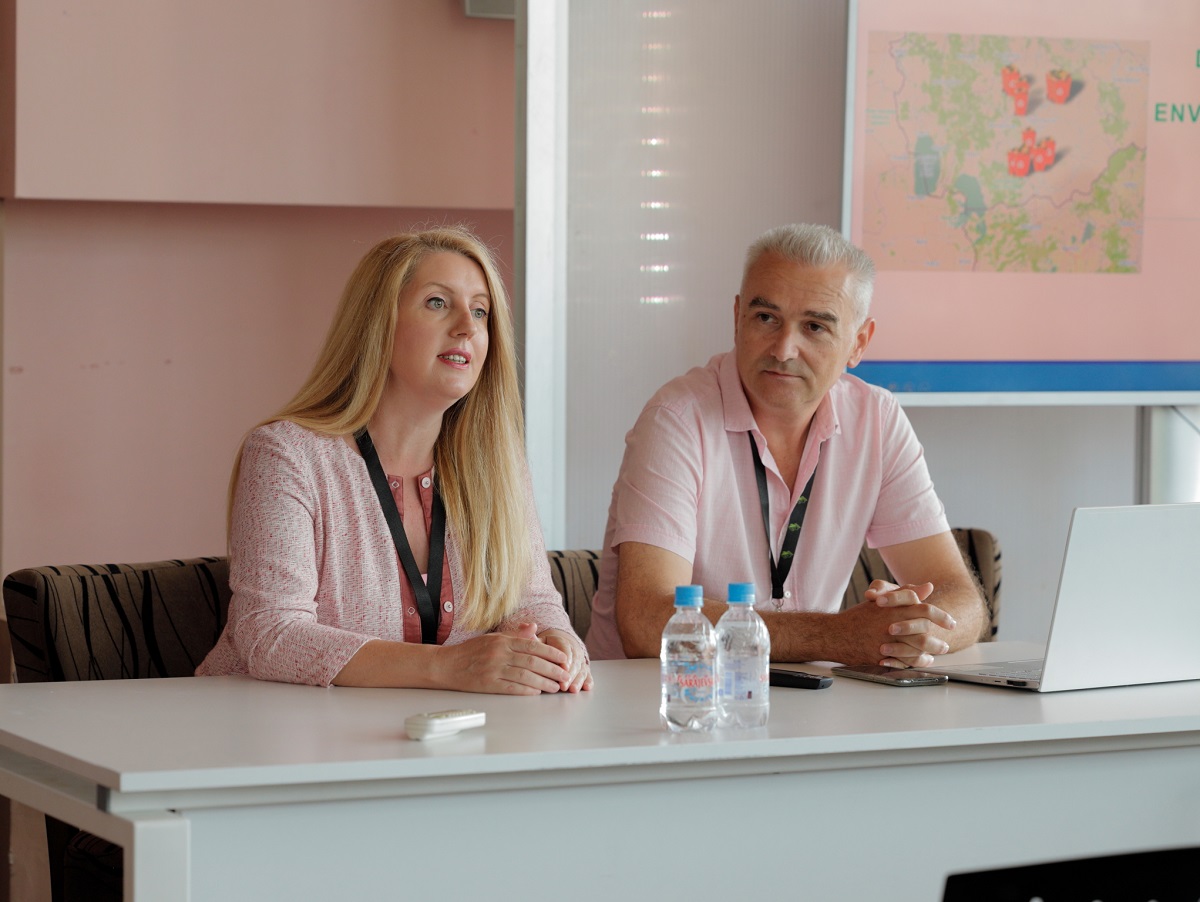Monitoring Matrix, non-formal education and environmental accountability
Showcase focused on the Monitoring Matrix’s role in strengthening civil society’s impact, a platform promoting non-formal education opportunities for Bosnian youth, and a digital tool to locate and address illegal landfills in North Macedonia, emphasizing citizen engagement and transparency in environmental governance.

Transformative potential of the Monitoring Matrix, a comprehensive framework developed by and for civil society, and another two platforms were topics on the second day of the Point Conference.
Biljana Spasovska, Executive Director of BCSDN, a regional network of CSOs dedicated to empowering civil society in the Balkans, talked about the transformative potential of the Monitoring Matrix, a comprehensive framework developed by and for civil society. She explained that Matrix was developed in 2009, covering basic legal guarantees to freedoms, a framework for CSO’s financial viability and sustainability, and government relationship with CSOs. Matrix aims to respond to the need of CSOs to have evidence-based research products and capacities to advocate for policy changes towards a more enabling civil society environment. Biljana said that they had significant challenges, especially in different countries when it comes to freedom of association, freedom of assembly, digital rights violations (especially in Serbia) and governments increasingly targeting and stigmatizing CSOs.
Biljana said they are working now on revising the methodology, especially on the right to open, secure and safe civic space online, rethinking the way how they collect the data, integration of AI in the process of collecting and processing data, exploring AI for trend mapping, early warning systems and strategic foresight and reinventing the way to communicate the findings.

Thesecond presentation was held by Sara Humić, co-founder of platform “ZUJALICA”, whose mission is to share all non-formal education opportunities for youth of Bosnia and Herzegovina. Through “ZUJALICA”, Sara and her co-partner want to tear down the misconception that personal and professional growth opportunities are scarce in the country.
Platform “ZUJALICA” aims to provide information about events for young people where they can connect with other young people with the same interests. Sara talked about the platform and criteria for finding the events. For social media, they use templates so everyone can easily find information of their interest. Another criteria for sharing is that events must be free which means that covers costs of accommodation, transportation, etc. Sometimes it can happen that they post information for events with fees but that’s an extremely small percentage of posts and they always emphasize that information.
Sara said that they follow statistics, and as far as she knows, young people are mostly interested in events about mental health.
The third presentation was held by Aneta Shijakova, Doctor of Philosophy in the field of public administration and management of EU funds, and Zoran Kotevski, a professor at the Faculty of Information and Communication Technologies, “St. Kliment Ohridski” University in Bitola.

They presented a digital platform whose purpose is to locate illegal landfills on a regional level in North Macedonia. For now this project covers the Pelagonia region which is part of Macedonia, but they aim to expand the project to other regions. In the last eight to ten months, they established a system for illegal landfills and so far they have 50 active illegal landfills. Every citizen can photograph an illegal landfill and post that picture on this platform with information on location, and they will put that on a map. Zoran is in charge of working on softver and improving the system of this platform.
Main goal of this project is to have cooperation on a subscription basis and when it comes to communication with stakeholders, they still haven’t found a way to communicate with them. Also they actively work to be partners with the media because without transparency and publicity this idea would not survive.
Author: Emina Kuštrić